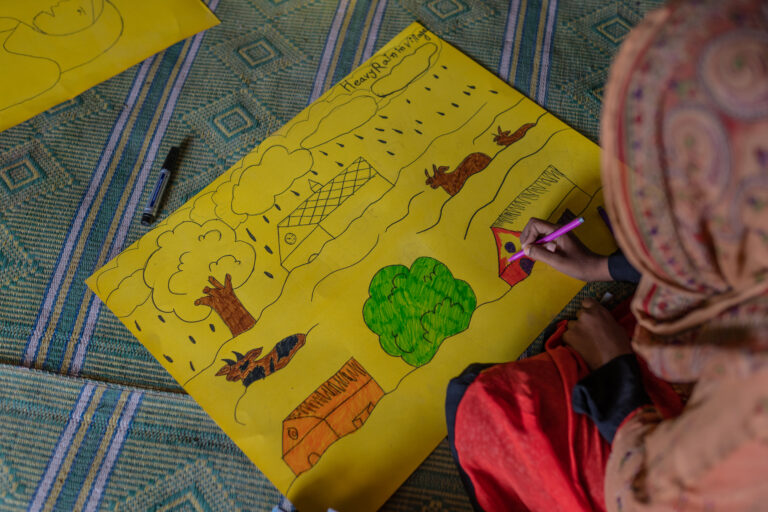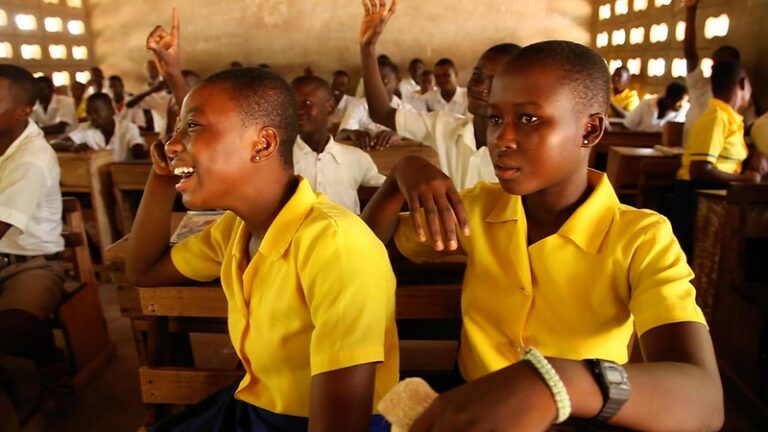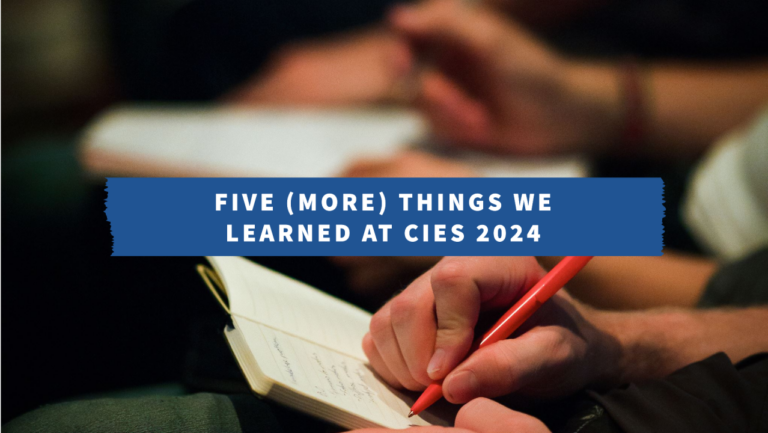Bridging gaps in early childhood education through non-state initiatives
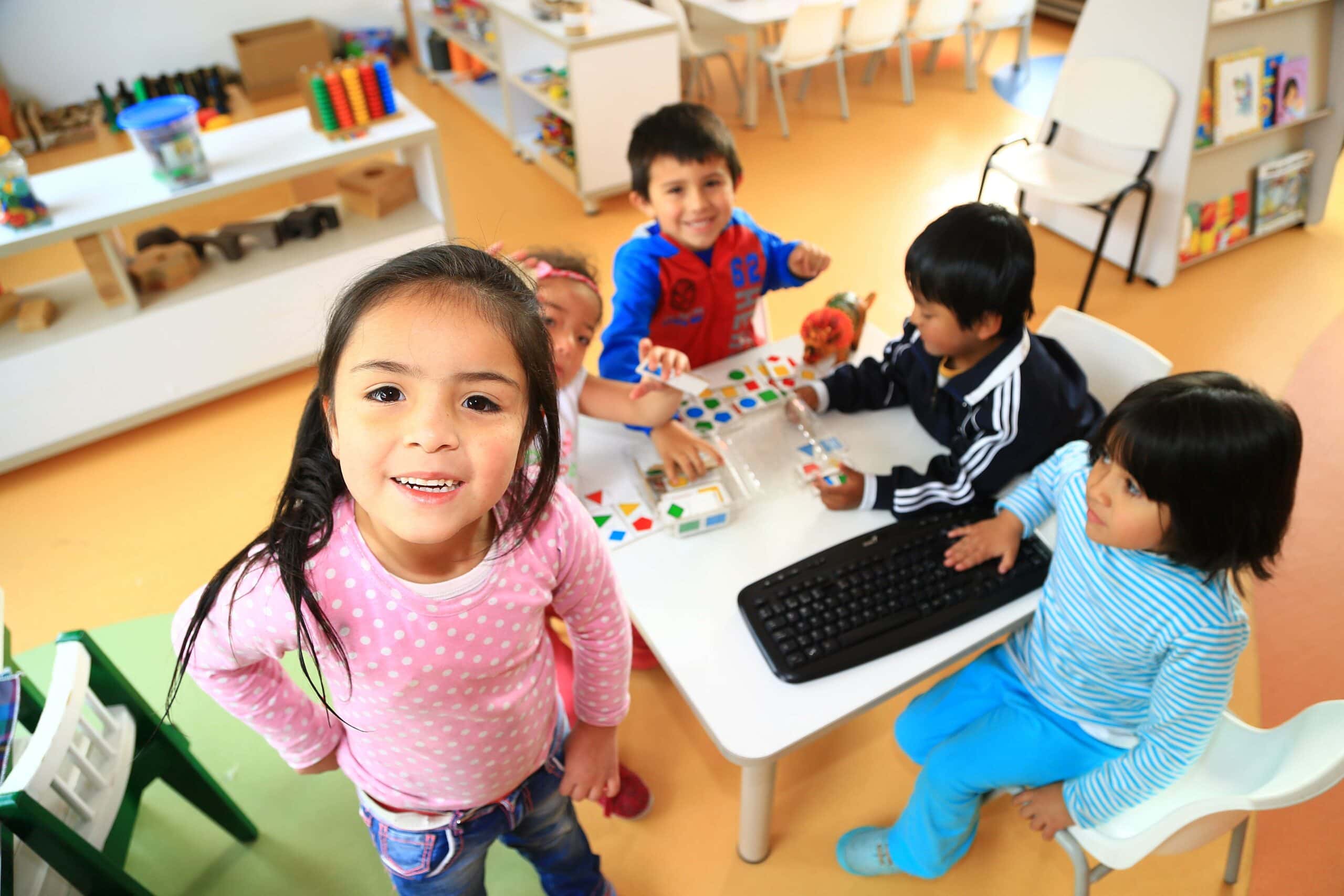
Early childhood education (ECE) interventions are known to lead to many benefits later in life. A recent World Bank systematic review found that early childhood interventions in low- and middle-income countries (LMICs) lead to improvements in physical and socioemotional health, cognition, education and income-earning potential. In many cases, ECE interventions that aim to improve children’s early stimulation and school readiness were found to improve standardized test scores in primary school in addition to increasing enrollment.
Non-state actors play a significant role in ECE
Despite its importance, in many contexts ECE – often referred to as pre-primary education – is not a part of core government provision of education. While some countries have recently begun expanding public pre-primary education (for example in Kenya, Nigeria, and South Africa), other countries lag far behind, leaving many families without access to any form of pre-primary schooling. As a result, non-state actors play a significant role in ECE provision. For example, in sub-Saharan Africa the private sector has an estimated ~26% of market share for pre-primary education.
However, the expansion of non-state actors’ role in ECE doesn’t always mean that the services are accessible to the most disadvantaged children, or that the interventions are successful in improving learning outcomes. A new evidence brief from the Education Finance Network, Non-State Engagement in Early Childhood Education: Conditions for Success, identified three key conditions contributing to ECE providers’ success in improving ECE quality and access for disadvantaged children: community and parent involvement, teacher capacity and training, and strong partnerships with government and other stakeholders.
To learn more about the challenges and opportunities in promoting equitable and high-quality ECE services, the Education Finance Network spoke to two members who work in this space. Lerato Lehoko is the Managing Director of Yellowwood’s IMBE Enterprise Incubator, who help women-run early childhood development micro-enterprises in South Africa to achieve financial sustainability by building entrepreneurial capacity, secure growth funding, and reduce major operating expenses. Maria Adelaida Lopez is the Executive Director of aeioTU, a Colombian social enterprise with a mission to transform communities through the development of the full potential of children, which provides ECE services and supports the wider ECE ecosystem through capacity development.
Addressing the access gap for the most disadvantaged children
In South Africa, the government has made significant strides in developing a strong policy framework for early childhood development provision (ECD) which comprises health, nutrition and child protection, in addition to the pre-primary schooling elements of ECE. However, challenges around coordination, funding and delivery of ECD services mean that 36% of three-to-five-year-olds do not attend any type of early learning program, and families living in the lowest socio-economic areas are the least likely to access them.
Early learning in South Africa is intended to be delivered via a public-private partnership model, in which the state subsidizes small, independent operators which are run as non-profits or social enterprises. They play an important role in addressing gaps in access for disadvantaged children, as they are often located in rural or marginalized communities. However, BRIDGE and others estimate that in 2020 less than a third of ECD operators were registered with the Department of Social Development and thus eligible for receipt of subsidies.
Lerato Lehoko explained the challenges many of these operators face.
“The South African government subsidizes ECE programs serving poor children with ZAR17 (USD 0.96) per child per day. But for an ECE service provider to access this subsidy they need to be registered with a local municipality. Many of these providers are community-based entrepreneurs who care for children in their homes, and complying with the requirements to register can be very difficult and costly for them.
For example, the land used for the centers needs to be zoned for business, but the premises used by these small entrepreneurs are often residential. There are infrastructure regulations about – for example – the maximum number of children per square meter, and requirements regarding ownership that do not align with the context of many of these businesses. It’s hard for people who want to set up a small ECE business to know where to start and what to do.”
Yellowwoods, a family office with an “impact first” portfolio of social enterprises and systems change platforms focused on ECD, basic education, agriculture, and youth livelihoods, addresses these challenges through a multipronged approach. Firstly, they work with the government to address regulatory and policy barriers to unlock subsidies to ECE providers. Furthermore, they build delivery platforms by providing ECE franchise opportunities through their SmartStart program, creating a network of new practitioners. Finally, through IMBE Enterprise Incubator, they help women entrepreneurs grow sustainable ECE micro-enterprises in their communities by providing start-up and growth capital, as well as capacity development. Two years ago, IMBE launched an accelerator program for these micro-enterprises, consisting of financial and non-financial support, to help them increase their income, improve retention, and improve the value proposition for parents.
Since the start of IMBE seven years ago, over 5,000 ECD entrepreneurs in the Smartstart network have been kickstarted with seed funding and over 1,800 ECD entrepreneurs are being supported to grow and stabilize their incomes through IMBE’s Accelerator Program.
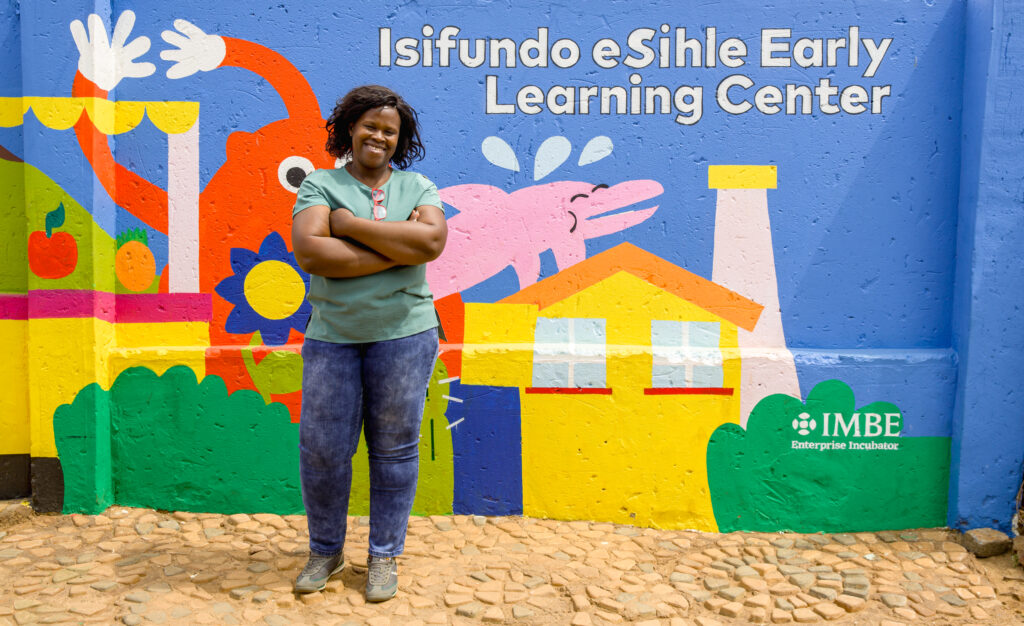
The relationship between children and their families is key
Funded by Fundación Carulla, aeioTU runs four private and seven public early childhood education centers in Colombia, the latter serving vulnerable communities across the country, as well as a home-based program. In addition to direct provision, aeioTU offers capacity development, teacher training and consultancies, and runs the aeioTU Network, a digital learning platform and community of practice.
Inspired by the Reggio Emilia approach, aeioTU believes that the relationships and interactions among the children, between the children and adults, and among the adults in the ECE centers, are key to high-quality ECE services. María Adelaida López, aeioTU’s Executive Director, said:
“One of the challenges we see is the fact that the families are not participating enough in their children’s education – they are just being informed. There is a huge gap between what is happening in the early educational settings and what is happening at home. And we know that we need to make sure that the home settings are also peaceful and joyful, so that the children have as little stress as possible.”
María claims that the most important aspect of the success of their ECE provision is their holistic view of the educational experience, where everything that surrounds the life of the children matters.
“We pay attention to positive interactions and loving relationships, and weave this into the relationships with families, teachers and communities, so that everything that happens within the educational model generates and builds a sense of belonging, community, and identity. When you start from the needs and interests of the child, you make sure that the physical environment is beautiful, that there are spaces and material for learning, that the teachers have the right tools, and that the families are part of the daily life of the school.”
A longitudinal study by Universidad de los Andes and the NIEER Institute of Rutgers University showed that after eight months of children living the aeioTU Educational Experience, there are significant positive differences in their cognitive development. It also showed that their parents play more, use less punishment, and participate more in democratic activities, which improves the well-being of children, families, and the community. Since 2008, the aeioTU program has impacted the lives of almost 1 million children, improved the skills and knowledge of over 30,000 teachers, and influenced the parenting practices of over 800,000 parents and caregivers.
“For us” said María “what is most important is that the children acquire the tools they need in life: not only to read and write, but to be able to be autonomous, to be leaders, to be critical thinkers, and to be creative. And for the families and communities to have the right tools to provide the opportunities for learning that the children really need, and that they are fun and joyful.”
Successful ECE is a joint effort
Successful ECE is a joint effort and requires the active involvement of governments, funders, teachers, caregivers/parents, and communities. Non-state actors can play a vital role in providing funding, ECE services, teacher training and other capacity development. Bridging the gap to achieve universal access to quality early childhood education by 2030 will require all hands on deck.

